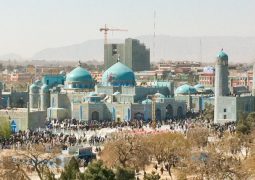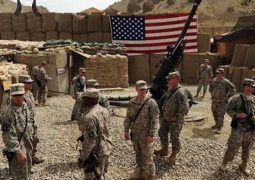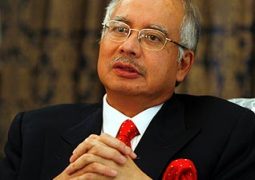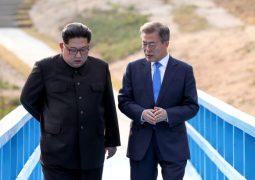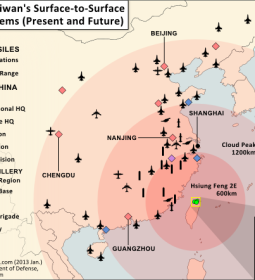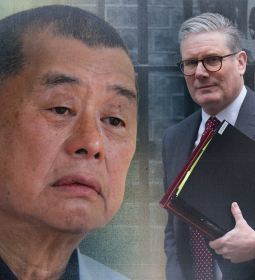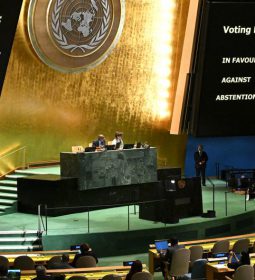Another ethnic group revolt in Myanmar’s Rakhine state on the border with China: Arakan Army
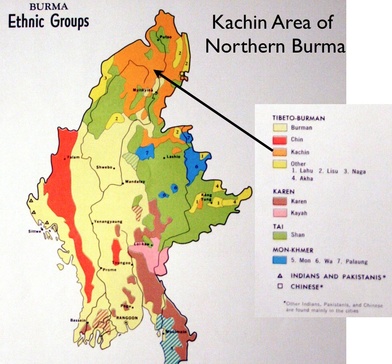
Rakhine: the new front in Myanmar’s violent ethnic conflicts
Violence flared a year ago when the Arakan Army attacked Myanmar police, forcing thousands from their homes.
by Andrew Nachemson and Lun Min Mang
07 Jan
The AA stepped up its campaign against the Myanmar government when it attacked a number of police posts in Rakhine a year ago [File: Hein Htet/EPA]
Yangon, Myanmar – A year ago, four police stations in the conflict-ridden western Rakhine Statec ame under attack from the Arakan Army (AA) leaving an estimated 13 officers dead and nine injured.
The response was swift.
Myanmar’s military (also known as the Tatmadaw) promised to “crush the terrorists”, marking the beginning of the latest bloody chapter in the country’s never-ending conflicts, waged primarily between the Tatmadaw and various ethnic rebel groups.
Rakhine has become notorious as the location of the military’s brutalities against Rohinya, which led to the exodus of 740,000 people and accusations of genocide.
What the military called “clearance operations” were partially justified by claims that the Muslims posed a threat to Rakhine Buddhists and their way of life, but the AA, founded in 2009 is an ethnic Rakhine, religiously Buddhist armed group.
Its move against the central government is rooted in Myanmar’s history, recent and ancient, experts say.
David Brenner, who researches ethnic armed conflict in Myanmar, met AA commander-in-chief Tun Myat Naing in 2014 when the group was still operating in Kachin State, along the Chinese border in northern Myanmar.
At that time, the AA was receiving support and training from another ethnic armed group, the Kachin Independence Army.
“They were looking for a kind of united front against the Tatmadaw, they offered training to armed movements around the country,” said Brenner, now a lecturer in International Relations at Goldsmiths, University of London, in a recent interview with Al Jazeera.
The AA’s presence in Kachin was always meant to be temporary, and in 2018 they returned to Rakhine, precipitating the escalation of the conflict.
Specific incidents of Tatmadaw aggression helped stoke tensions, including a violent crackdown that year on an event commemorating the ancient Arakan kingdom, which left seven civilians dead and led to the arrest of popular Rakhine politician Aye Maung for treason.
Rakhine has been rocked by violence between the Myanmar military and the rebel Arakan Army. The military has vowed to “crush the terrorists”. [File: Nyunt Win/EPA]
Rakhine, an independent kingdom from 1429 to 1782 with its own rich history and culture, has long been overlooked by the central government and excluded from national peace talks, according to analysts.

That is partly because, as the British colonialists, it sees the ethnic Rakhine as similar to the majority Bamar.
“The British appeared to regard the Rakhine people as close cousins of the majority Bamars and therefore not sufficiently distinct for separate representation,” wrote ethnic affairs expert Martin Smith in his 2019 publication, Arakan (Rakhine State): A Land in Conflict on Myanmar’s Western Frontier.
Her lack of control over the military and inability to satisfy the demands of ethnic armed groups means fighting continues even as ceasefires are signed.
Aung San Suu Kyi herself has also been accused of exacerbating the issue in ethnic minority states and appointing members of her own party to serve as state ministers, rather than representatives from ethnic parties.
Excluded from the peace talks and without any territory of its own, the AA has sought to expand its territory and force the military into negotiations.
“They need a strong army and they need territory first otherwise they’re not being taken seriously at the negotiation table,” Brenner said. “That, of course, entails very fierce escalation in Rakhine. Getting territory means that territory needs to be conquered first.”
The unrest has forced tens of thousands from their homes and into temporary camps [File: Nyunt Win/EPA]
According to Brenner, the Rohingya crackdown, while initially supported by many ethnic Rakhine, has led to destabilisation, violence, and greater poverty – and the presence of the military.
“Arakanese nationalists are not happy with that because now the Tatmadaw presence in Rakhine is much heavier than it was before,” Brenner explained.
During Myanmar’s decades of military rule, Rakhine became the second-poorest state in the country and continues to suffer even as enormous Chinese and Indian projects are approved in the area. Many fear they are being left behind as Myanmar develops.
“Underpinning these struggles is a belief – as in many other ethnic nationality areas of the country – that the political and economic interests of the local peoples are being marginalised and neglected by the central government,” Smith said in an email.
Smith added that while Arakan political groups are consistently the most popular in the state, they do not win enough votes for significant representation nationally, leaving people feeling excluded from the political process.
In a recent interview with Al Jazeera, Khaing Thu Kha, the spokesman for the AA, blamed the Tatmadaw for the increased fighting.
“We are not invading Mandalay or Yangon. Rakhine is our land, we have the right to be there,” he said.
Khaing Thu Kha also accused the military, which is under international scrutiny for its human rights abuses, of attacking civilians. “Sometimes they just blatantly attack a Rakhine village with the excuse that the AA is using civilians as cover to ambush army columns, which is baseless,” he said.
In one high-profile incident in December, the Tatmadaw attacked a village, leaving three dead.
Rakhine locals said soldiers stormed the village, executing two and taking another eight people hostage. One was later found dead with his throat slit and arm cut off. The military acknowledges two died, saying the villagers were AA fighters killed in a shoot-out, It denied there was a third victim.
Rakhine State is in Myanmar’s far west and one of the country’s poorest areas [Al Jazeera]
Smith said the AA “have very obviously been able to find popular support among large sections of the community” and the Tatmadaw’s heavy-handed response had only deepened sympathy.
“At a time when the international community has been expressing concern over these tactics, the Tatmadaw has resumed its long-standing strategies against armed opposition groups,” he said, including shelling whole villages and arresting and summarily executing suspected AA members or supporters.
Ma Khin Than Shwe, a resident of Kyaukpyu township in Rakhine, said she feels inequality is the root cause of the internal conflict. “Rakhine used to be a sovereign kingdom, not even a state. Rakhine State is rich in natural resources,” she said.
Even so, she does not want the return of an Arakan Kingdom, only that the people of Rakhine benefit from economic development. “If the government used as small as five percent for Rakhine, not even 10 or the whole 100, our state wouldn’t be that poor,” she said. “We feel oppressed and discriminated against.”
Many prisoners have been taken on both sides, including the brother, sister, and brother-in-law of AA commander Tun Myint Naing. His wife and children were detained by Thai immigration authorities when Myanmar annulled their passports.
While being oppressed and colonised by the English, you Bamar staged a revolution. But now, you’re doing the exact same thing to ethnic people including Rakhine.
KHAING THU KHA, ARAKAN ARMY
On the other side, the AA has taken and released many of its prisoners, including two politicians from the ruling National League for Democracy.
MP Hawi Tin remains in custody, while the AA claims that Buthidaung Township chairman Ye Thein was killed when the Tatmadaw shelled the area. The military could not be reached for comment, but previously denied engaging in conflict that day, saying they believe Ye Thein died much earlier.
Khaing Thu Kha denied that any of the arrests have been “retaliatory”. He says the AA is only taking potential military spies and that any deaths are due to the dangerous situation created by the Tatmadaw.
“I want the Bamar society to think about this. While being oppressed and colonised by the English, you Bamar staged a revolution. But now, you’re doing the exact same thing to ethnic people including Rakhine. Is it fair?” Khaing Thu Kha asked.
For now, there are no indicators that a peaceful solution is near, but Smith said if the ruling NLD revived the peace process and made it genuinely inclusive, ethnic armed groups would respond favourably.
“It is the local peoples who above all want peace,” he said.
- Previous State of SOS for all of us about upcoming climate change impact: Bushfires destroy Australian wildlife
- Next Russia feels safe itself in boiling Middle East: Putin meets Assad in rare Syria visit amid US-Iran tensions




